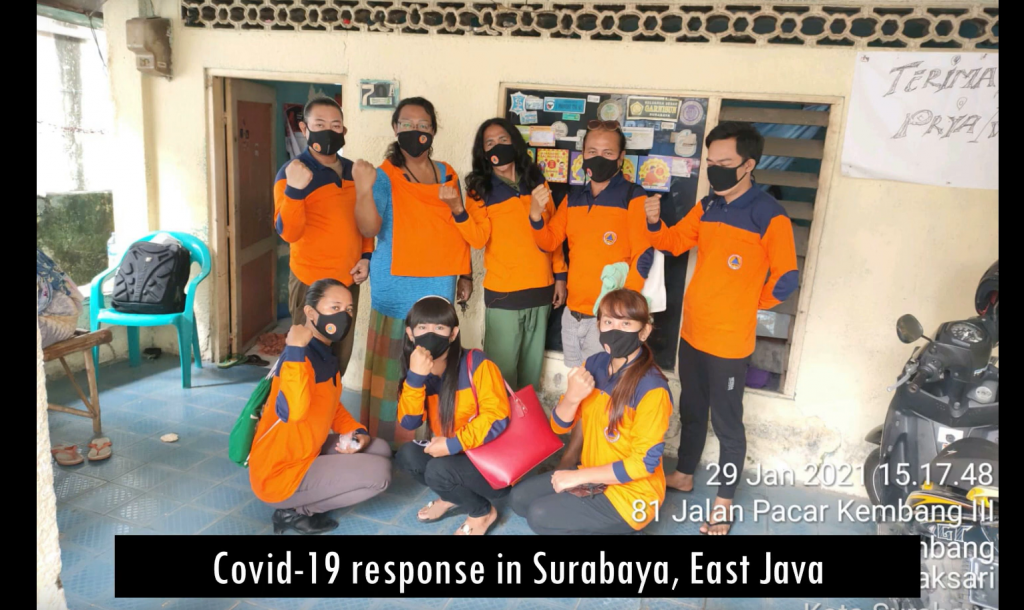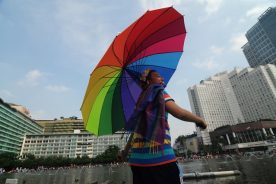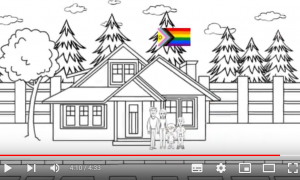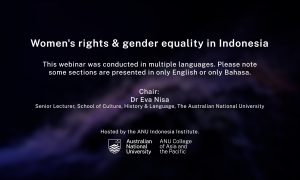In Indonesia, the government formally acknowledges only two genders, male and female. Transwomen (along with gay and lesbian individuals) are categorized under People with Social Welfare Problem or known as Penyandang Masalah Kesejahteraan Sosial (PMKS). This is based on four criteria, i.e., a) social functioning disorder, b) discrimination, c) marginalisation, and d) deviant social behaviour. Despite giving up on the legislative situation that discriminates against them, Surabaya transwomen who are members of Surabaya Transwomen Association (Perwakos) fight against it by engaging actively in public activity. This is story about them fighting Covid-19 together with East Java Regional Disaster Management Agency.
LGBTQ+ community leaders in Indonesia: overcoming pandemic hardship
LGBTQ+ Indonesians are driving some of the most effective community responses to the hardships of the pandemic.
My engagement with Perwakos started years ago, during an HIV-AIDS campaign activity when I was still an undergraduate student. I worked with them again years later, through Circle Indonesia—a local organisation based in Yogyakarta—on a USAID-funded project that focused on scaling-up integrated interventions serving populations most-at-risk to HIV transmission in Indonesia. While working on that project, I also wrote my masters thesis about transwomen’s performativity and their space in Surabaya city.
My concern with gender diversity is founded on my long experiences working as gender specialist for development and humanitarian projects for international agencies/organisations. I face a lot of rejection when trying to raise the issue. Government officials will always refer to the abovementioned existing formal regulations on gender. Further, in daily life a recent trend in Indonesia since sees people tending to rejection everything related to LGBT issues, including trans* people. The term LGBT is indeed now notorious now in Indonesia, almost always with negative connotations. There are also a lot of persecution of non-binary people.
Specifically, regarding disaster management—an issue that I often engage with—I presented a paper about heteronormative practice of Indonesia disaster management at the 8th Asian Graduate Forum on Southeast Asia Studies at National University of Singapore in 2013. The paper addressed the work of transwomen in Yogyakarta trying to break the stigma by engaging in disaster response activity in the aftermath of the 2010 Mt. Merapi eruption.
This video is part of my efforts to raise concerns about how regulation of gender impacts non-binary individuals, and how they fight back against it.
This publication was supported by an ANU Gender Institute grant which provided funds for New Mandala and Connecting Designs to run a series of workshops supporting early career academics investigating issues of gender and sexuality in Southeast Asia to develop their audio-visual research communication skills.
 Facebook
Facebook  Twitter
Twitter  Soundcloud
Soundcloud  Youtube
Youtube  Rss
Rss 



